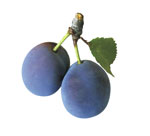Medical Practice: Physician-Patient Relationship
Posted by: admin on: July 18, 2011
Medical practice requires scientific knowledge, technical skill and human understanding
- Many years of study, a long interval of training and a lifetime of dedicated service are required in order to become a good physician.
- It is therefore essential that a premedical student have an overview of the nature of the medical profession.
- This can be accomplished in a number of different ways, including
- Reading about the activities of medical students, physicians-in-training and those in practice
- Talking with medical students and doctors
- Performing volunteer work in a hospital
Read the rest of this entry »
Campaign Advocates Partnership with Family Doctor for Better Health
Posted by: admin on: July 15, 2011
Hong Kong (HKSAR) – A Department of Health started a campaign to bring home to the public the message of partnership with family doctors and other primary care providers for better health.
- Primary Care Campaign comprises a series of health promotion and publicity activities to enhance public knowledge and understanding of the importance of primary care.
- Primary care is the first contact point of the healthcare system for individuals and families.
- It provides easily accessible, comprehensive, continuing, co-ordinated and person-centred care to members of the community.
Read the rest of this entry »
The Optimal Timing of Smoking Cessation Before Surgery
Posted by: admin on: July 15, 2011
There is strong evidence that smoking cessation is beneficial to long-term health. All patients are forced to become nonsmokers, if only for a short period, around the time of surgery. The perioperative period presents a unique opportunity to try and get patients to permanently stop smoking
- Globally, over 230 million adults undergo major surgery annually, and millions of these patients experience major respiratory and cardiovascular complications.
- 30% of patients undergoing surgery are smokers at the time of their surgery, and smoking is associated with an increased risk of postoperative complications, the strongest evidence being for respiratory complications.
- There is encouraging evidence that smoking cessation prior to surgery may prevent postoperative complications and increase long-term abstinence from tobacco Read the rest of this entry »
Resveratrol May Slow Aging in Humans
Posted by: admin on: July 15, 2011
The plant extract resveratrol, found in the skin of red grapes, appears to suppress inflammation and may fight aging in humans, according to a new study.
- Common food sources of resveratrol include grapes, wine, peanuts, blueberries, and cranberries.
- The plant extract has been shown to prolong life and reduce the rate of aging in roundworms, fruit flies, and yeast, apparently because resveratrol affects a gene associated with longevity.
- Resveratrol reduces inflammation in humans that could lead to heart disease, stroke and Type 2 diabetes.
- Resveratrol suppresses the generation of “free radicals” — unstable molecules known to cause oxidative stress and release pro-inflammatory substances into the blood, resulting in damage to the blood vessel lining.
- People taking resveratrol also showed suppression of the inflammatory protein tumor necrosis factor, or TNF and other compounds that increase blood vessel inflammation and interfere with insulin action, causing insulin resistance and the risk of developing diabetes.
Read More on http://www.medscape.com/viewarticle/726467?src=mpnews&spon=34
Society of Thoracic Surgeons Updates Blood Conservation Guidelines
Posted by: admin on: July 14, 2011
The Society of Thoracic Surgeons and the Society of Cardiovascular Anesthesiologists have updated their 2007 blood conservation clinical practice guidelines
Updated Topics
1.Preoperative management of dual anti-platelet treatment
2.Pharmacotherapy to increase red blood cell volume or to reduce blood loss
3.Use of blood derivatives, eg, fresh frozen plasma, factor XIII, leukoreduced red blood cells, platelet plasmapheresis, recombinant factor VII, antithrombin III, and factor IX concentrates
4.Updated strategies to manage blood salvage
5.Use of minimally invasive procedures to reduce perioperative bleeding and need for blood transfusion
6.Strategies for blood conservation associated with extracorporeal membrane oxygenation and cardiopulmonary perfusion
7.Use of topical agents for hemostasis
8.Optimal usefulness of team interventions in blood management.
Search
- drchasrani: Difficult to get such a data, authenticated at that. Try Times of India online library
- rakesh pore: hi, where can i get genuine information about "10 most common drugs sold in india?" i want it for a local project
- nilesh dutta: sir, Plz give detail about MBA Sports Management Thanks and Regards

